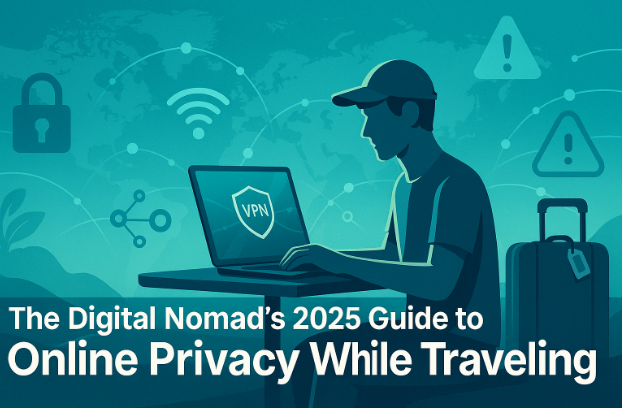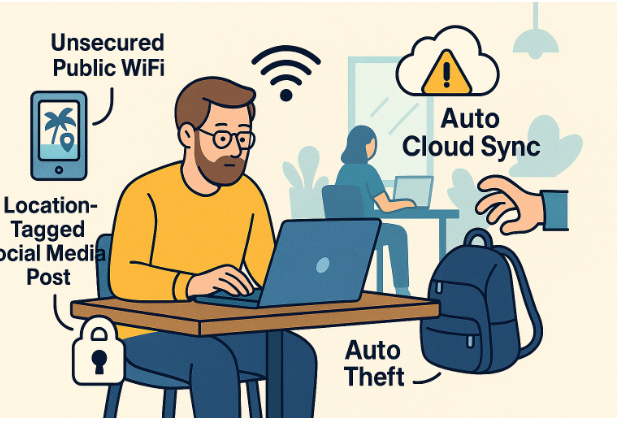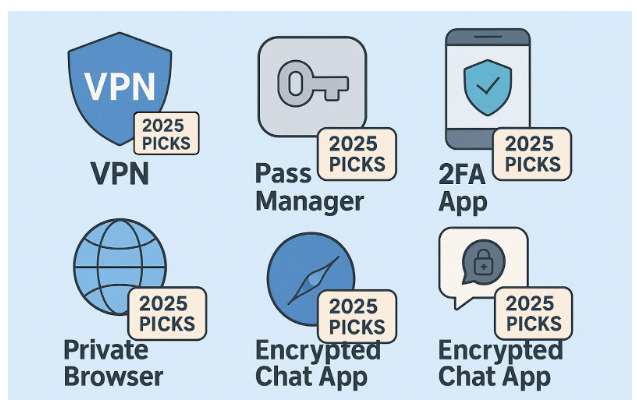BUSINESS
SAP Cloud Platforms Driving Business Transformation: An Engine for Innovation

Cloud computing is at the forefront of the technological revolution, transforming businesses’ operations. Cloud computing provides unparalleled flexibility and scalability by delivering computer resources and apps on demand via the Internet. This innovation enables companies to manage resources efficiently, reduce costs, and introduce new business models. By transitioning away from traditional IT infrastructures, often characterized by inflexibility and high costs, companies embracing cloud solutions can significantly change their operational focus. Instead of dedicating valuable resources to maintenance and troubleshooting, organizations can channel their efforts into fostering innovation and developing new products or services.
This shift enhances operational efficiency and promotes a culture of resilience and adaptability, which are increasingly critical in today’s fast-paced and ever-evolving market landscape. For many organizations, platforms like the SAP Cloud Platform have become instrumental in modernizing IT infrastructure, allowing teams to collaborate effortlessly across geographical barriers. Moreover, as cloud solutions advance, they enable businesses to integrate state-of-the-art technologies, such as artificial intelligence, machine learning, and data analytics. These tools can help organizations gain deeper insights, streamline processes, and drive strategic growth and innovation. By leveraging these cutting-edge solutions, companies can position themselves better to meet customer demands and outpace competitors.
SAP Cloud Platform: A Game-Changer for Enterprises
The extensive range of services the SAP Cloud Platform offers includes data management, application development, and integration capabilities. Businesses can tailor solutions to meet unique operational needs by capitalizing on these services. The platform’s seamless integration with other enterprise systems ensures companies can unify their IT landscape without disruption. Organizations embracing this technology often witness significant improvements in efficiency through automated processes and real-time data analytics.
Moreover, the SAP Cloud Platform offers businesses the tools to innovate swiftly, encouraging the development of new apps and services. Its flexibility reduces time-to-market for digital offerings and fosters a culture where innovation can thrive. Enterprises can thereby position themselves to adapt quickly to emerging trends and consumer demands, gaining a strategic advantage over competitors locked in traditional ways of operation.
Real-World Advantages of Implementing SAP Cloud Solutions
Moving to the cloud brings numerous tangible benefits, including enhanced security features and collaborative tools. However, one of the most evident advantages is the ability of enterprises to pivot swiftly in a fast-changing marketplace. With the agility to scale operations up or down as needed, businesses can respond to consumer demands and stay competitive in a globalized market landscape.
Case studies from leading industries reveal the successful implementation of SAP Cloud solutions. These examples demonstrate how organizations have harnessed cloud technology to deliver products faster, optimize supply chains, and improve customer satisfaction. The strategic use of SAP Cloud services fosters innovation and creates streamlined workflows to enhance productivity and profit margins.
Challenges and Considerations in Cloud Adoption
Despite the clear benefits, adopting a cloud-based infrastructure can be challenging. Concerns often revolve around data security, as businesses must protect their sensitive information against breaches. To avoid interruptions or data silos, integrating cloud solutions with pre-existing IT ecosystems also requires careful strategy and implementation.
Cost management is another significant consideration. While cloud solutions can lower expenses, mismanagement can lead to unforeseen expenditures. Businesses must evaluate their cloud contracts and monitor usage to optimize costs effectively. Ensuring these challenges are addressed can unlock the true potential of cloud technology, aligning with broader business objectives and growth ambitions.
Navigating Cloud Security and Compliance
For companies using cloud computing, security and compliance remain paramount. Developing robust cloud security measures safeguards sensitive data and maintains regulatory compliance, which is pivotal for trust and operational integrity. Organizations must stay abreast of evolving threats and update security protocols to protect against vulnerabilities continuously.
Furthermore, effective compliance management mitigates risk and enhances brand reputation. Businesses that demonstrate a commitment to securely handling data and meeting industry standards strengthen customer confidence and loyalty, ultimately contributing to sustained success.
Predicted Trends in Cloud Computing
Cloud computing is not static; it evolves rapidly, influenced by technological advancements and market needs. Emerging trends such as edge computing, AI-driven solutions, and quantum computing are poised to redefine how businesses utilize cloud technology. For example, edge computing aims to reduce latency and enhance real-time decision-making by bringing processing and data storage closer to the data source.
Moreover, integrating artificial intelligence within cloud platforms allows for more refined analytics, driving predictive insights and more innovative business strategies. Quantum computing, which can do complex computations beyond the capabilities of conventional computers and create new avenues for research and development, is at the forefront of this trend.
Final Thoughts: Capitalizing on Cloud Potential
Developing a comprehensive cloud strategy utilizing SAP Cloud is a multifaceted endeavor transcending mere technological implementation. It requires thoughtful and strategic alignment with an organization’s broader goals and vision. To truly harness the power of cloud solutions, businesses need to prioritize a culture of innovation and remain vigilant in tracking dynamic market trends. This proactive approach allows organizations to uncover new avenues for growth, optimize processes, and enhance their service delivery.
By embracing a cloud-first mindset, companies can shift from traditional, rigid operational frameworks to more flexible and responsive methodologies. This transformation empowers them to quickly adapt to evolving market conditions, respond to customer expectations, and leverage cutting-edge technologies. Organizations that make this strategy shift are positioned as flexible market leaders with a robust infrastructure that can handle the challenges of a quickly changing digital environment. In doing so, businesses are preparing for the present and laying the groundwork for long-term success and competitiveness in an increasingly interconnected global economy.
BUSINESS
The most important questions small business owners should ask

You’re not alone. Another $4.99 million in new businesses have opened this year, too. No wonder you have a lot of questions.
After all, you have to look after all aspects of small business as an entrepreneur. Or you’ve simply been dumbstruck and not able to understand where to start from.
Don’t worry. A lot of people face such issues when they start their own business. Let me help you with some ideas. I’ll share a list of 4 questions that most entrepreneurs ask me. Maybe you will get some valuable leads from there-
#1: “I don’t have enough resources, but a lot on the plate to handle. Where to begin?”
I know getting along is tough. The main issue is that you don’t have the main men in supporting roles like your C-suite. Here’s the trick. You have to do strong networking.
Now, how will that help you?
Firstly, who should you network with? Preferably, people like attorneys, accountants, and fellow business owners. They can sync with your purpose. At the same time, they will give you valuable advice, opinions, and suggestions.
You may also consider tools like Secure Plus checks. The automated check software handles your financial part. At least, you can easily keep a tab on your costs without breaking a sweat.
#2: I lag in digital innovation. Without a digital presence, I would lose customers. What do I do?”
When the pandemic hit, 75% of the US businesses without a digital presence fell from their positions to ground 0. Cut to today! A lot of consumers expect that even small businesses like bakeries and repairs will have their full-fledged digital profiles.
There are a lot of tools that help you set up your website. But most companies spend the lion’s share of their marketing budget on digital campaigns like content marketing and SEO.
There is a range of free tools to get your work done. You may need just a few people on your team to build the whole digital ecosystem.
After your digital ecosystem is up and running, you can get traction from a lot of sources. You can expect to tap into a range of new territories too.
#3: How to pitch your business to gain access to more capital?
A lot of people mess up their finances, mixing them with their business. So, I refrain from doing that. Instead, approach a capitalist or an institution (preferably banks, as they offer low interest rates) for financial support.
You’re not alone. Another $4.99 million in new businesses have opened this year, too. No wonder you have a lot of questions.
After all, you have to look after all aspects of small business as an entrepreneur. Or you’ve simply been dumbstruck and not able to understand where to start from.
Don’t worry. A lot of people face such issues when they start their own business. Let me help you with some ideas. I’ll share a list of 4 questions that most entrepreneurs ask me. Maybe you will get some valuable leads from there-
#1: “I don’t have enough resources, but a lot on the plate to handle. Where to begin?”
I know getting along is tough. The main issue is that you don’t have the main men in supporting roles like your C-suite. Here’s the trick. You have to do strong networking.
Now, how will that help you?
Firstly, who should you network with? Preferably, people like attorneys, accountants, and fellow business owners. They can sync with your purpose. At the same time, they will give you valuable advice, opinions, and suggestions.
You may also consider tools like Secure Plus checks. The automated check software handles your financial part. At least, you can easily keep a tab on your costs without breaking a sweat.
#2: I lag in digital innovation. Without a digital presence, I would lose customers. What do I do?”
When the pandemic hit, 75% of the US businesses without a digital presence fell from their positions to ground 0. Cut to today! A lot of consumers expect that even small businesses like bakeries and repairs will have their full-fledged digital profiles.
There are a lot of tools that help you set up your website. But most companies spend the lion’s share of their marketing budget on digital campaigns like content marketing and SEO.
There is a range of free tools to get your work done. You may need just a few people on your team to build the whole digital ecosystem.
After your digital ecosystem is up and running, you can get traction from a lot of sources. You can expect to tap into a range of new territories too.
#3: How to pitch your business to gain access to more capital?
A lot of people mess up their finances, mixing them with their business. So, I refrain from doing that. Instead, approach a capitalist or an institution (preferably banks, as they offer low interest rates) for financial support.
You’re not alone. Another $4.99 million in new businesses have opened this year, too. No wonder you have a lot of questions.
After all, you have to look after all aspects of small business as an entrepreneur. Or you’ve simply been dumbstruck and not able to understand where to start from.
Don’t worry. A lot of people face such issues when they start their own business. Let me help you with some ideas. I’ll share a list of 4 questions that most entrepreneurs ask me. Maybe you will get some valuable leads from there-
#1: “I don’t have enough resources, but a lot on the plate to handle. Where to begin?”
I know getting along is tough. The main issue is that you don’t have the main men in supporting roles like your C-suite. Here’s the trick. You have to do strong networking.
Now, how will that help you?
Firstly, who should you network with? Preferably, people like attorneys, accountants, and fellow business owners. They can sync with your purpose. At the same time, they will give you valuable advice, opinions, and suggestions.
You may also consider tools like Secure Plus checks. The automated check software handles your financial part. At least, you can easily keep a tab on your costs without breaking a sweat.
#2: I lag in digital innovation. Without a digital presence, I would lose customers. What do I do?”
When the pandemic hit, 75% of the US businesses without a digital presence fell from their positions to ground 0. Cut to today! A lot of consumers expect that even small businesses like bakeries and repairs will have their full-fledged digital profiles.
There are a lot of tools that help you set up your website. But most companies spend the lion’s share of their marketing budget on digital campaigns like content marketing and SEO.
There is a range of free tools to get your work done. You may need just a few people on your team to build the whole digital ecosystem.
After your digital ecosystem is up and running, you can get traction from a lot of sources. You can expect to tap into a range of new territories too.
#3: How to pitch your business to gain access to more capital?
A lot of people mess up their finances, mixing them with their business. So, I refrain from doing that. Instead, approach a capitalist or an institution (preferably banks, as they offer low interest rates) for financial support.
You’re not alone. Another $4.99 million in new businesses have opened this year, too. No wonder you have a lot of questions.
After all, you have to look after all aspects of small business as an entrepreneur. Or you’ve simply been dumbstruck and not able to understand where to start from.
Don’t worry. A lot of people face such issues when they start their own business. Let me help you with some ideas. I’ll share a list of 4 questions that most entrepreneurs ask me. Maybe you will get some valuable leads from there-
#1: “I don’t have enough resources, but a lot on the plate to handle. Where to begin?”
I know getting along is tough. The main issue is that you don’t have the main men in supporting roles like your C-suite. Here’s the trick. You have to do strong networking.
Now, how will that help you?
Firstly, who should you network with? Preferably, people like attorneys, accountants, and fellow business owners. They can sync with your purpose. At the same time, they will give you valuable advice, opinions, and suggestions.
You may also consider tools like Secure Plus checks. The automated check software handles your financial part. At least, you can easily keep a tab on your costs without breaking a sweat.
#2: I lag in digital innovation. Without a digital presence, I would lose customers. What do I do?”
When the pandemic hit, 75% of the US businesses without a digital presence fell from their positions to ground 0. Cut to today! A lot of consumers expect that even small businesses like bakeries and repairs will have their full-fledged digital profiles.
There are a lot of tools that help you set up your website. But most companies spend the lion’s share of their marketing budget on digital campaigns like content marketing and SEO.
There is a range of free tools to get your work done. You may need just a few people on your team to build the whole digital ecosystem.
After your digital ecosystem is up and running, you can get traction from a lot of sources. You can expect to tap into a range of new territories too.
#3: How to pitch your business to gain access to more capital?
A lot of people mess up their finances, mixing them with their business. So, I refrain from doing that. Instead, approach a capitalist or an institution (preferably banks, as they offer low interest rates) for financial support.
You’re not alone. Another $4.99 million in new businesses have opened this year, too. No wonder you have a lot of questions.
After all, you have to look after all aspects of small business as an entrepreneur. Or you’ve simply been dumbstruck and not able to understand where to start from.
Don’t worry. A lot of people face such issues when they start their own business. Let me help you with some ideas. I’ll share a list of 4 questions that most entrepreneurs ask me. Maybe you will get some valuable leads from there-
#1: “I don’t have enough resources, but a lot on the plate to handle. Where to begin?”
I know getting along is tough. The main issue is that you don’t have the main men in supporting roles like your C-suite. Here’s the trick. You have to do strong networking.
Now, how will that help you?
Firstly, who should you network with? Preferably, people like attorneys, accountants, and fellow business owners. They can sync with your purpose. At the same time, they will give you valuable advice, opinions, and suggestions.
You may also consider tools like Secure Plus checks. The automated check software handles your financial part. At least, you can easily keep a tab on your costs without breaking a sweat.
#2: I lag in digital innovation. Without a digital presence, I would lose customers. What do I do?”
When the pandemic hit, 75% of the US businesses without a digital presence fell from their positions to ground 0. Cut to today! A lot of consumers expect that even small businesses like bakeries and repairs will have their full-fledged digital profiles.
There are a lot of tools that help you set up your website. But most companies spend the lion’s share of their marketing budget on digital campaigns like content marketing and SEO.
There is a range of free tools to get your work done. You may need just a few people on your team to build the whole digital ecosystem.
After your digital ecosystem is up and running, you can get traction from a lot of sources. You can expect to tap into a range of new territories too.
#3: How to pitch your business to gain access to more capital?
A lot of people mess up their finances, mixing them with their business. So, I refrain from doing that. Instead, approach a capitalist or an institution (preferably banks, as they offer low interest rates) for financial support.
Meanwhile, the pitch you are preparing is most crucial. Always try to reflect the potential of your business verticals. Reflect the objectives of the upcoming 5 years. At the same time, state your business figures. If your numbers are low, you must flaunt a clear plan to improve revenues.
Before you move with your business, you need to get some things straight. Firstly, you have to create your business checking account. In the meantime, you can apply for small business credit cards.
That’s the most lucrative way to fund the business verticals. However, it is better not to use your credit sources, like your own credit card or your loan, for your business needs.
If you mix your finances with those of your business, the banks might become confused. It would be difficult to get a clear picture of the company’s finances.
#4 What do we do to overcome the effect of inflation?
It depends mainly on the business. If you have an inventory, then your inventory management should be top-notch. Don’t spend more than you have. Also, ensure that you have a good grip on your cash flow.
During heavy inflation, your expenses may easily surpass your earnings. So, you must handle your front-end operations properly. Most importantly, you should hire a social media expert to promote your brand and scale up your business.
BUSINESS
The Digital Nomad’s 2025 Guide to Online Privacy While Traveling

You’re sipping espresso in a Lisbon café, editing your latest client project. The Wi-Fi is free. So is the hacker watching your every move.
Digital nomads are more connected than ever — and more exposed. From accidental overshares on Instagram to sketchy hotel internet, every country you visit brings a new set of privacy pitfalls.
In some cases, your digital trail can even be weaponized against you through tactics like doxxing — where personal details are leaked or used maliciously online.
This isn’t about fear — it’s about freedom. In this guide, you’ll discover how to secure your data, devices, and digital identity, so you can roam the world with peace of mind in 2025.
Why Online Privacy Matters More Than Ever for Digital Nomads
Life on the road is exhilarating — but also unpredictable. As digital nomads rely on remote access to sensitive files, finances, and communication tools, their personal data is increasingly vulnerable.
Whether you’re hopping between Airbnb stays, working in shared co-working spaces, or broadcasting your location on social media, your digital footprint becomes a roadmap for malicious actors. In 2025, with cyberattacks and personal data exposure on the rise, privacy isn’t a luxury — it’s a necessity.

8 Real-World Privacy Risks Nomads Face on the Road
1. Public Wi-Fi Networks & Data Interception
Open Wi-Fi at airports, cafés, and co-working spaces is notoriously unsafe. Hackers can easily intercept unencrypted data — including passwords, emails, and credit card details — through man-in-the-middle attacks.
2. Oversharing Locations on Social Media
Instagram stories, Twitter check-ins, and Facebook updates can inadvertently reveal your exact location and routine, making it easier for bad actors to track your movements or impersonate you online.
💡 Pro Tip: Delay your posts by 24 hours and remove metadata like geotags.
3. Device Theft in Hostels or Co-Working Spaces
It only takes a moment of distraction for someone to grab your laptop or phone. Without strong locks or biometric access, a thief could gain access to everything from work files to personal photos.
4. Unsecured Cloud Sync & Auto Backups
Many travelers keep cloud syncing on by default. But syncing on an unsecured network can expose sensitive files — especially if your device is set to auto-connect or auto-upload.
🔗 Related: What is Doxxing and How to Protect Yourself — understanding how personal data can be used against you is key to proactive defense.
5. SIM Swap & Phone Number Hijacking
SIM swap fraud can lock you out of your phone, bank, and 2FA-protected accounts. Travelers who use temporary or virtual numbers may be especially vulnerable.
6. Border Searches and Device Confiscation
Certain countries allow border agents to access your devices without a warrant. Without encryption or travel-specific device precautions, your data could be copied or detained.
7. Shoulder Surfing in Public Spaces
Whether you’re booking a flight or logging into PayPal, it’s surprisingly easy for someone nearby to observe or film your screen.
8. Malicious QR Codes and Travel Scams
From free Wi-Fi access signs to fake tour offers, QR code phishing has become a growing scam targeting international travelers.

Essential Privacy Tools Every Nomad Should Use in 2025
In the age of remote work, using the right privacy tools is the first line of defense.
Virtual Private Networks (VPNs)
A quality VPN like X-VPN encrypts your internet traffic, masking your IP and shielding you from network-based attacks.
Password Managers
Tools like 1Password or Bitwarden store your credentials securely and can generate ultra-strong passwords — far better than “Lisbon2025!”
2FA (Two-Factor Authentication)
Wherever possible, enable two-factor authentication. Use an authenticator app over SMS for added security, especially abroad.
Encrypted Messaging Apps
Use apps like Signal or Telegram for business and personal communication — especially when dealing with clients or sensitive files.
Private Browsers & Extensions
Browsers like Brave or Firefox with privacy extensions block trackers and fingerprinting scripts that follow you around the web.
Top Privacy Habits for Remote Workers Abroad
1. Secure Devices Before Traveling
- Turn on full-disk encryption
- Enable remote wipe for laptops and phones
- Disable auto-connect to open Wi-Fi networks
2. Review Social App Permissions
- Apps often track more than you think. Turn off location access where unnecessary and review privacy settings weekly.
3. Delay Posting & Remove Metadata
- Use tools like ExifCleaner to strip photo metadata before posting.
- Wait until you leave a location before sharing details publicly.
4. Use Burner Emails & Travel Phone Numbers
- For public Wi-Fi logins or signups, use disposable email addresses.
- Consider a separate SIM or eSIM for travel-related accounts.
Location-Specific Tips: How Privacy Laws Differ Around the World
Not all countries treat your data the same way. As a digital nomad, it’s worth knowing the regulatory landscape:
🇪🇺 Europe (GDPR Stronghold)
The General Data Protection Regulation (GDPR) provides strong protections — but only for EU citizens. Tourists may not be covered in the same way.
🇹🇭 Thailand / 🇮🇩 Indonesia
These countries have newer data laws but limited enforcement. Local internet cafés and SIM vendors may store ID info with little oversight.
🇺🇸 United States
Strong consumer rights in some states (like California), but little federal oversight. Law enforcement has broad access in some cases.
Final Thoughts: Staying Safe and Free in the Digital World
Living as a digital nomad in 2025 is an incredible opportunity — one that comes with great responsibility over your digital presence. With cyber threats growing and personal data becoming more valuable than ever, staying proactive about your privacy isn’t just smart — it’s essential.
Whether you’re working from a mountain town in Colombia or a co-working space in Prague, taking a few extra steps to secure your devices and protect your online identity can mean the difference between a smooth journey and a digital disaster.
Travel boldly, live freely — and always guard your digital trail.
BUSINESS
Know Your Rights: A Citizen’s Guide to Legal Protections

Introduction
Understanding your constitutional rights during interactions with law enforcement is essential for every citizen. This guide provides an overview of key legal protections guaranteed by the U.S. Constitution and relevant case law. While this information serves as a general educational resource, it is not a substitute for personalized legal advice from a qualified attorney.
The Fourth Amendment: Protection Against Unreasonable Searches and Seizures
The Fourth Amendment protects citizens against unreasonable searches and seizures by government officials, including police officers. This means:
- Warrant Requirement: In most cases, police need a warrant to search your home, vehicle, or personal belongings.
- Probable Cause: For a warrant to be issued, officers must demonstrate probable cause that evidence of a crime will be found.
- Exceptions: Several exceptions exist, including:
- Consent searches
- Plain view doctrine
- Searches incident to a lawful arrest
- Automobile exception (with probable cause)
- Exigent circumstances (emergencies)
The Fifth Amendment: Protection Against Self-Incrimination
The Fifth Amendment includes several important protections, most notably the right against self-incrimination:
- Right to Remain Silent: You cannot be compelled to provide testimony that might incriminate yourself.
- Miranda Rights: If you are in custody and being interrogated, officers must inform you of your rights to:
- Remain silent
- Be informed that anything you say can be used against you
- Have an attorney present during questioning
- Have an attorney appointed if you cannot afford one
The Sixth Amendment: Right to Counsel
The Sixth Amendment guarantees the right to legal representation:
- Right to an Attorney: You have the right to be represented by an attorney in all criminal proceedings.
- Public Defenders: If you cannot afford an attorney, one will be appointed to represent you.
- When the Right Attaches: This right begins at critical stages of prosecution, starting with formal charges.
During Police Encounters: Know Your Rights
Traffic Stops
- Remain calm and keep your hands visible.
- You must provide your license, registration, and proof of insurance when requested.
- You have the right to remain silent beyond providing basic identifying information.
- You may refuse consent to search your vehicle, but officers may search if they have probable cause.
- You are not required to answer questions about where you’re going or where you’ve been.
Street Encounters
- Ask if you are free to leave. If yes, you may calmly walk away.
- If detained, you have the right to know why you are being detained.
- You do not have to consent to a search of your person or belongings, though officers may conduct a limited pat-down for weapons if they have reasonable suspicion.
- Remaining silent cannot be used as evidence of guilt.
Home Encounters
- You do not have to open your door for police unless they have a warrant.
- You may ask to see the warrant before allowing entry.
- If officers have a valid search warrant, you should not interfere with their search, but you can observe and take notes.
- Without a warrant, you can deny entry (with some exceptions for emergency situations).
How to Exercise Your Rights
When Interacting with Police
- Stay calm and be respectful. Hostility can escalate situations unnecessarily.
- Clearly state that you are exercising your rights. For example: “I do not consent to a search” or “I am exercising my right to remain silent.”
- Ask if you are free to leave. If not, ask why you are being detained.
- Request an attorney immediately if arrested. Say clearly: “I want to speak with an attorney.”
- Do not resist arrest, even if you believe the arrest is unlawful. Legal challenges should be made in court, not on the street.
Documenting the Encounter
- Mental notes: Remember officer names, badge numbers, patrol car numbers.
- Witnesses: Note if there are witnesses to the interaction.
- Written record: As soon as possible, write down everything you remember.
- Medical attention: Seek medical attention immediately if injured and document all injuries.
When Professional Legal Help Is Necessary
While understanding your rights is crucial, navigating the legal system requires professional expertise in many situations:
- If you’ve been arrested or charged with a crime
- If your rights have been violated
- If you’re unsure about the legality of police actions
- Before making any statements to police in a criminal investigation
Finding the Right Legal Representation
- Criminal defense specialists have specific expertise in protecting citizens’ rights during criminal proceedings.
- Legal aid organizations can provide representation if you cannot afford an attorney.
- Bar association referrals can help you find qualified attorneys in your area.
- Public defenders are trained specifically in criminal defense.
Important Disclaimer
This guide provides general information about legal principles and is not legal advice tailored to specific situations. Laws vary by state and locality, and legal precedents evolve over time. Always consult with a qualified attorney for advice about your specific circumstances.
Resources for Further Information
- American Civil Liberties Union (ACLU): www.aclu.org
- National Legal Aid & Defender Association: www.nlada.org
- American Bar Association: www.americanbar.org
- State and local bar associations
- Legal aid organizations in your community
Conclusion
Knowledge of your constitutional rights is an essential component of citizenship, but it is only the first step. When facing serious legal situations, professional legal counsel is invaluable. Criminal law specialists are trained to navigate the complexities of the legal system and provide the personalized guidance necessary to protect your rights and interests.
Remember: The best protection is a combination of knowledge, calm assertion of your rights, and appropriate professional legal representation when needed.
-

 GENERAL1 year ago
GENERAL1 year agoDiscovering the Artistic Brilliance of Derpixon: A Deep Dive into their Animation and Illustration
-

 Posts1 year ago
Posts1 year agoSiegel, Cooper & Co.
-

 Lifestyle1 year ago
Lifestyle1 year agoPurenudism.com: Unveiling the Beauty of Naturist Lifestyle
-

 Lifestyle1 year ago
Lifestyle1 year agoBaddieHub: Unleashing Confidence and Style in the Ultimate Gathering Spot for the Baddie Lifestyle
-

 HEALTH1 year ago
HEALTH1 year agoTransformative Health Solutions: Unveiling the Breakthroughs of 10x Health
-

 Entertainment1 year ago
Entertainment1 year agoGeekzilla Podcast: Navigating the World of Pop Culture, Gaming, and Tech
-

 Entertainment1 year ago
Entertainment1 year agoKhatrimaza Unveiled: Exploring Cinematic Marvels and Entertainment Extravaganza
-

 BUSINESS1 year ago
BUSINESS1 year agoUnlocking the Secrets to Jacqueline Tortorice Remarkable Career and Accomplishments
